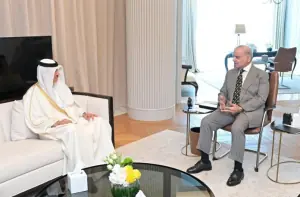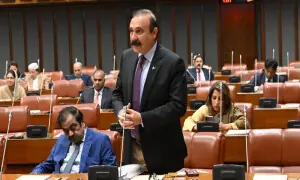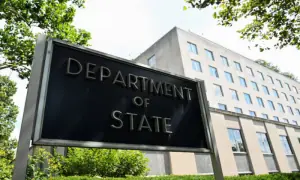Owais Leghari: Government to halt further electricity purchases
2 min readThe federal government has decided to stop purchasing additional electricity, Energy Minister Owais Leghari announced during a high-level meeting on power sector reforms.
He stated that Independent Power Producers (IPPs) have the options of negotiating, seeking arbitration, or opting for a forensic audit.
The minister emphasised that shifting to local coal and phasing out furnace oil-based power plants will significantly reduce costs.
Leghari addressed international development partners, including representatives from the World Bank, IMF, ADB, IFC, German Embassy, and UNDP, outlining the government’s strategy to restructure the power sector.
Also, read this
Government drops plan to shift electricity tariff rebasing date after IMF rejection
Consumers, farmers using 300 units monthly to get FCA savings benefit
Government plans to cut electricity tariff by Rs8 to Rs10 per unit: sources
He reassured them that all negotiations with IPPs were being conducted transparently and independently.
According to the minister, the government has successfully cut 7,000 megawatts from the Indicative Generation Capacity Expansion Plan (IGCEP) planned 17,000 megawatts, leading to substantial savings on costly power generation.
He highlighted ongoing efforts to expand transmission infrastructure, including projects such as the Matiari-Moro and Ghazi Barotha-Faisalabad transmission lines, reactive power compensation devices, and battery storage systems to resolve grid bottlenecks.
Leghari also detailed plans to divide NTDC into two separate entities, improve governance in power distribution companies (DISCOs), and introduce a modern energy management system to enhance efficiency.
He noted that the government aims to eliminate circular debt within the next five to eight years, adding that rationalising electricity tariffs and subsidies is part of the strategy to stabilise the sector.
Discussing net metering, Leghari revealed that the current system is putting a Rs150 billion burden on other electricity consumers, necessitating reforms.
He stressed that increasing power demand must be managed strategically through long-term pricing models rather than capacity charges.
The minister reiterated that the government is committed to establishing a competitive wholesale electricity market, ensuring that power supply meets demand efficiently without excessive costs.
He reaffirmed that the privatisation of DISCOs and governance reforms remain key priorities in the broader restructuring process.
International development partners acknowledged the government’s initiatives and expressed their support for implementing the proposed reforms.
For the latest news, follow us on Twitter @Aaj_Urdu. We are also on Facebook, Instagram and YouTube.






















Comments are closed on this story.